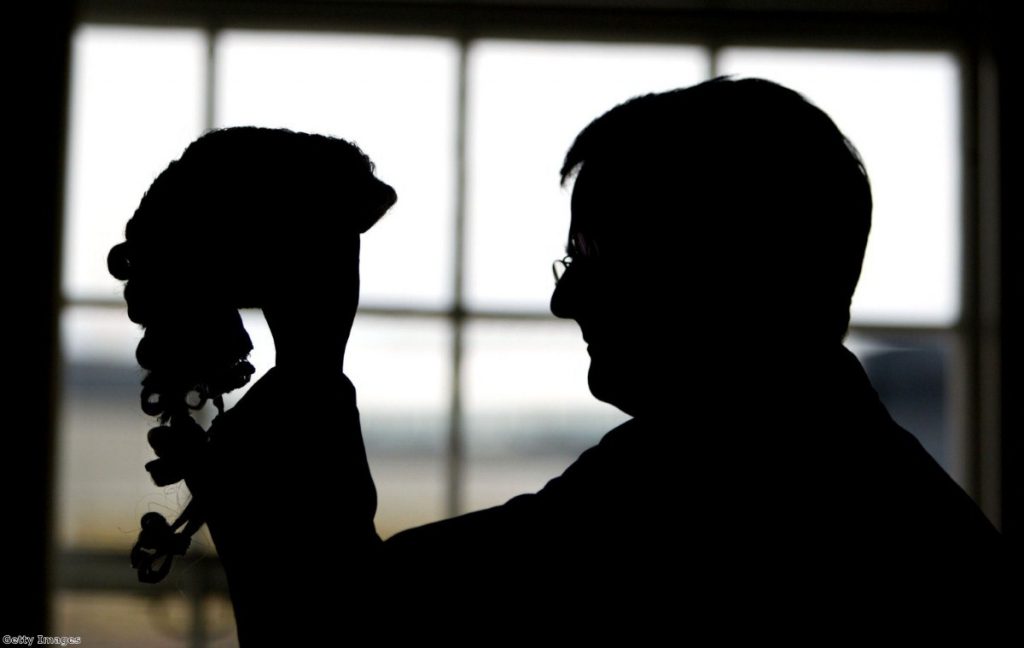Baptism of fire: Gove facing de-facto legal strike
Something remarkable happened yesterday in Liverpool. Over 100 barristers and solicitors met to discuss cuts to legal aid fees. They came to a shocking conclusion. In a statement following the meeting they said:
"The government recognise that the profession is fragile and yet continue to take grave risks with the stability of the criminal justice system. The message being delivered by individual firms was that they had made an assessment of the cuts that are to be introduced on the July 1st 2015 and January 2016 and that they will not undertake work at this rate. The Bar confirmed that they would not be prepared to undertake any work on any case with a rep order dated on or after Wednesday 1st July in recognition of the damage that these cuts will have upon the independent Bar. It was further proposed that the bar would re-introduce the no-returns policy for all existing cases in the crown court from Wednesday July 1st."
This is a strike. You can't call it that, because it's not allowed. In fact, solicitors are very careful to stress that these meeting involve them coming to individual decisions, it just so happens they all do it in the same room at the same time. But whether it can be officially defined as a strike or not, the outcome would be the same: lawyers are refusing to take on new criminal cases after July 1st. And the no-returns threat is just as severe. If introduced in a couple more large areas of the country, the courts would come juddering to a halt.
No-returns deserves a brief explanation. Barristers' chambers work a bit like a taxi rank – the case comes in, whoever is next in line takes it. Very often, not least because of the creaking inadequacies of the legal system Michael Gove outlined in his speech this week, barristers are forced to miss the start or end of a case, or are unable to be in court to say a few words which need saying. Barristers often have to step in like this, sometimes several times a day. The system relies on this informal arrangement to keep going. If barristers refuse to take part. it quickly falls apart.


"It's very likely to spread," a senior solicitor tells me. "I know full well there are meetings going on all over the country over the next 48 to 96 hours. There's meetings today, tomorrow, over the weekend, early next week. Solicitors' firms are deciding on an individual basis whether they can sustain themselves on the basis of the July 1st cut. In many areas they've indicated they can't. In many areas, the Bar is being invited to consider also the policy of no-returns."
London meets on Monday, Manchester before then. Leeds and Bradford meet on Monday. If they follow suit the ramifications would be extreme. The next few days are crucial. Perhaps the problem will be contained. Or Gove could be facing a de-facto national strike.
Everything hinges on solidarity between barristers and solicitors – something which is rarely on display between the two groups. Solicitors are taking on more and more advocacy work, mostly to barristers' irritation. And beyond the natural competition and animosity, justice secretaries have proven adept at encouraging division between the two groups.
In a classic case of divide and rule, the government recently chose not to slash fees for Crown Court advocacy, while at the same time imposing a second tranche of 8.75% cuts on solicitors' criminal legal aid fees. Shortly afterwards, the chair of the Criminal Bar Association announced that "we will not call for barristers to forgo work in opposition to the scheme", despite an internal survey finding 96% of criminal law specialist barristers supported setting up picket lines.
There is a growing sense of anger at national negotiators. The action is now taking place at a grassroots level. In Liverpool solidarity has won out, with barristers going out on the line. It’s unclear whether that sensibility will win out in the rest of the country.
Liverpool has always had a reputation for being strong in this area. Relations in other parts of the country may or may not live up to its example. The next few days will tell.












